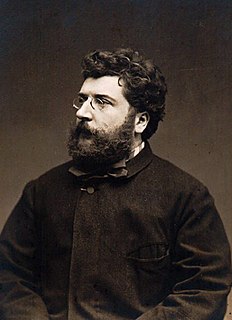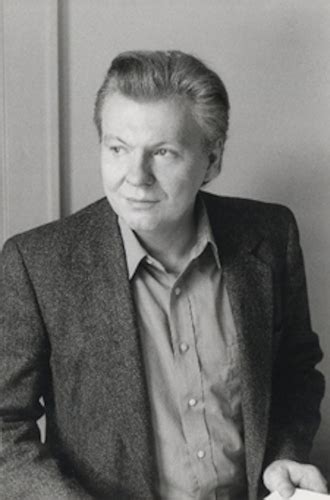A Quote by Georges Bizet
Religion is a means of exploitation employed by the strong against the weak; religion is a cloak of ambition, injustice and vice.
Related Quotes
Religion is a means of exploitation employed by the strong against the weak; religion is a cloak of ambition, injustice and vice . . . . Truth breaks free, science is popularized, and religion totters; soon it will fall, in the course of centuries--that is, tomorrow. . . . In good time we shall only have to deal with reason.
Art is not a substitute religion: it is a religion (in the true sense of the word: 'binding back', 'binding' to the unknowable, transcending reason, transcendent being). But the church is no longer adequate as a means of affording experience of the transcendental, and of making religion real - and so art has been transformed from a means into the sole provider of religion: which means religion itself.
A religion is a source of happiness and I would not deprive anyone of happiness. But it is a comfort appropriate for the weak, not for the strong--and you are strong. The great trouble with religion--any religion--is that the religionist, having accepted certain propositions by faith, cannot thereafter judge these propositions by evidence. One may bask at the warm fire of faith or choose to live in the bleak uncertainty of reason--but one cannot have both.
When...did it become irrational to dislike religion, any religion, even to dislike it vehemently? When did reason get redescribed as unreason? When were the fairy stories of the superstitious placed above criticism, beyond satire? A religion was not a race. It was an idea, and ideas stood (or fell) because they were strong enough (or too weak) to withstand criticism, not because they were shielded from it. Strong ideas welcomed dissent.
Yet Buddhism is four hundred years older than Christianity, and if it's not a universal religion I don't know what a universal religion is. There's also a strong focus on selectionism and the notion that religion plays a functional role in the evolutionary process. But religion is dysfunctional all the time, as well as functional. It's not so simple.
Religion is an important institution. A nation without religion cannot survive. Yet it is also very important to note that religion is a link between Allah and the individual believer. The brokerage of the pious cannot be permitted. Those who use religion for their own benefit are detestable. We are against such a situation and will not allow it. Those who use religion in such a manner have fooled our people; it is against just such people that we have fought and will continue to fight. Know that whatever conforms to reason, logic, and the advantages and needs of our people conforms equally to Islam. If our religion did not conform to reason and logic, it would not be the perfect religion, the final religion.
The "establishment of religion" clause of the First Amendment means at least this: Neither a state nor the Federal Government can set up a church. Neither can pass laws which aid one religion, aid all religions, or prefer one religion over another. Neither can force nor influence a person to go to or to remain away from church against his will or force him to profess a belief or disbelief in any religion.
The incipient magician will confess his faith to a universal religion. He will find out that every religion has good points as well as bad ones. He will therefore keep the best of it for himself and ignore the weak points, which does not necessarily mean that he must profess a religion, but he shall express awe to each for of worship, for each religion has its proper principle of God, whether the point in question be Christianity, Buddhism, Islam or any other kind of religion.
What our view of the effectiveness of religion in history does at once make evident as to its nature is--first, its necessary distinction; second, its necessary supremacy. These characters though external have been so essential to its fruitfulness, as to justify the statement that without them religion is not religion. A merged religion and a negligible or subordinate religion are no religion.
All attempts at law, all religion, all ethical norms might be nothing more than attempts by the weak to restrain the strong. Then, within the law, arise the new strong, who subvert the law for their own ends of power and family interest, leaving the old strong outside their circle to pursue the waiting possibilities which they call crime. The weak, the cowardly, the decent ones, live between these groups.







































